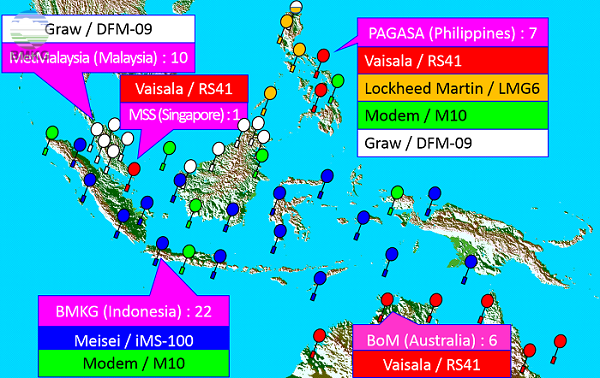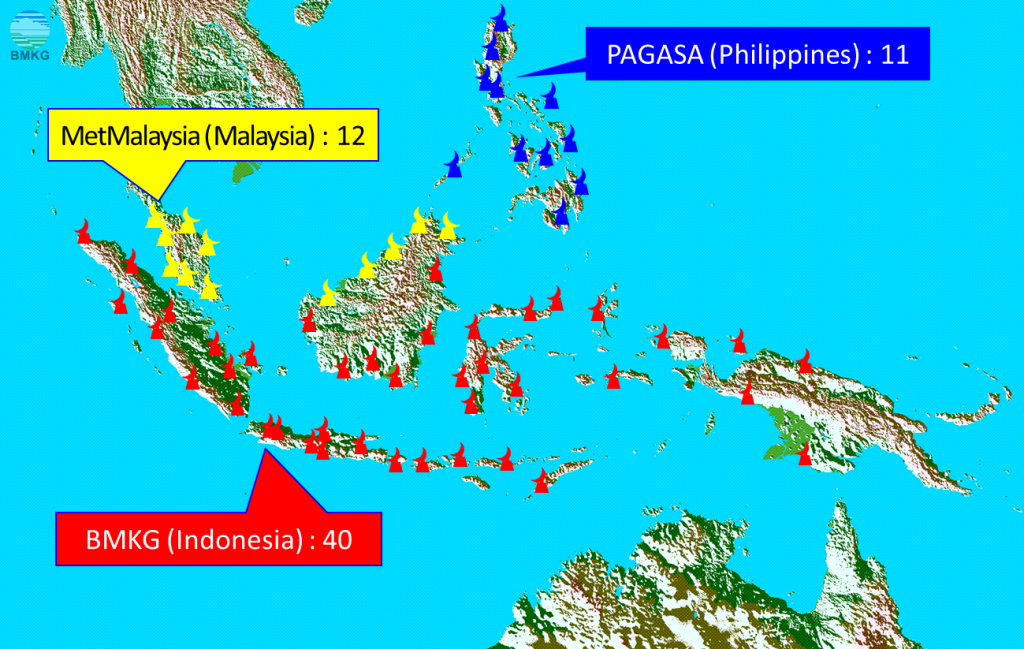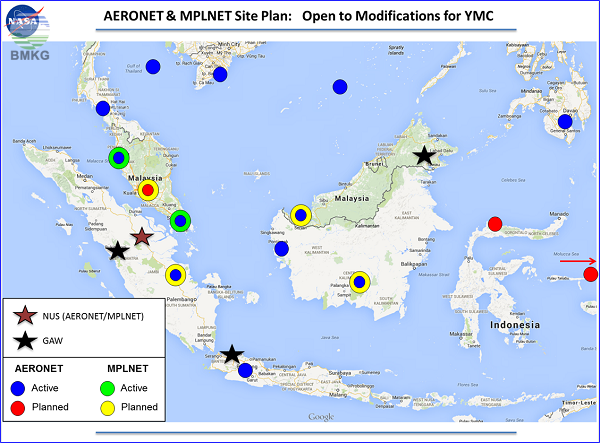Upper Air Stations

Weather Radars

NASA AERONET/MPLNET (Courtesy of Brent Holben & Judd Welton)

* ... Several coordinated intensive observations will be conducted during this period. But some of them may extend their period beyond this.
To advance understanding of physical processes governing diurnal, synoptic, intraseasonal and seasonal variability of atmospheric convection and their interaction under the influence of the complex land-sea distribution and topography.
2) Upper-Ocean Processes and Air-Sea InteractionTo advance understanding of controlling processes for the multi-scale diurnal, intraseasonal and seasonal variability of the ocean and air-sea interaction in the MC region under the influence of extremely complex bathymetry and islands.
3) Stratosphere-Troposphere InteractionTo advance understanding of processes governing the dynamical coupling of the stratosphere and troposphere and their mass exchanges over the MC.
4) AerosolTo advance understanding of key processes by which the multi-scale variability and interaction of convection and circulation affect the production, transport, and disposition of aerosol and their interaction with clouds in the MC.
5) Prediction ImprovementTo improve representations of key processes in weather and climate models through use of field observations and improved understanding.
For more details, please refer;We will build a 2-year comprehensive database through collecting, archiving, and sharing data from observing networks in the MC region, satellites and NWP products.
2) Field CampaignWe will collect special observations through a 2-year field campaign.
3) ModelingWe will quantify biases/errors of numerical models and potential for improvement of prediction and simulation skills through coordinated numerical experiments.
4) Prediction and ApplicationWe will demonstrate potential prediction improvement. We will also study optimizations of targeted prediction products for users, information disassembling through modern media, and support to emergence management.
5) Outreaching and Capacity BuildingWe will inform the general public of the knowledge of MC weather-climate system on its local and global impact. We will also train the next generation of scientists, forecasters, and technicians.
Chidong Zhang (NOAA/PMEL)
Kunio Yoneyama (JAMSTEC)
Edvin Aldrian (BPPT, Indonesia)
Olivia Cabrera (University of the Philippines)
Andreas Fink (Karlsruhe Institute of Technology)
Hans Huang (Meteorological Service Singapore)
Adrian Matthews (University of East Anglia)
Chung-Hsiung Sui (National Taiwan University)
Fredolin Tangang (The National University of Malaysia)
Matthew Wheeler (Australian Bureau of Meteorology)
Weidong Yu (First Institute of Oceanography, China)
Appointment from participating MC countries (under coordination)
Upper Air Stations

Weather Radars

NASA AERONET/MPLNET (Courtesy of Brent Holben & Judd Welton)
